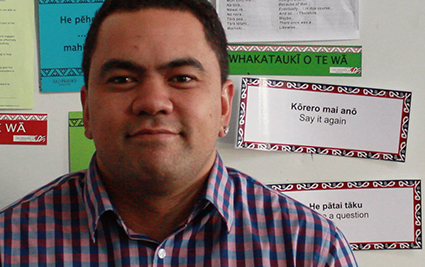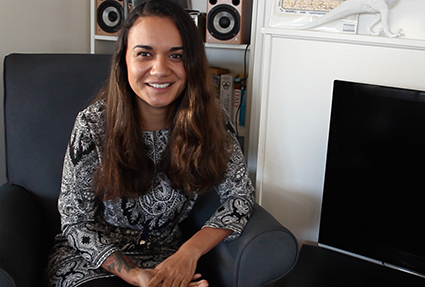
TJ Aumua
AUCKLAND (Pacific Media Watch): Kia ora. This simple greeting in te reo Māori is a frequent news topic that makes media headlines.
The most publicised incident happened in 1984, when respected Māori rights activist, and then telephone operator Naida Glavish was told by her bosses not to use the expression when greeting customers on the phone.
In August 2014, the greeting stirred controversy after a KiwiYo employer resigned from her job after allegedly being told not to welcome customers with “kia ora”.
Then in February this year, a language debate was sparked when TV3 weather presenter Kanoa Lloyd announced that she received negative feedback from the public for using te reo Māori terms in her broadcasts.
Even though it has been almost 30 years since the establishment of te reo Māori as an official language of New Zealand, national conversations have shown there is still a resistance towards embracing and learning the language.
Shilo Kino, a journalist of Māori heritage, said it was important for people to know that one of the reasons why the language needed to be practised and revitalised was because it used to be “forbidden” to speak it in New Zealand.
'Devastating effects'
“Because of this my grandparents were not able to pass it on to my parents and consequently they were not able to pass it on to me," she said.
“What we are seeing now is the devastating effects of so many Māori who are suffering because of what happened years ago.
“What we are doing now is to try and save it.”
William Flavell, head of Māori studies at Rutherford College, said negative perceptions and attitudes towards Māori needed to change for the language to be embraced through a “mainstream context”.
“In shows like Police Ten 7, a lot of the time the person being arrested is Māori. People can get an understanding by watching shows like that, that perhaps they see Māori in a negative tone therefore they’ll associate that with te reo Māori. So I think it’s about promoting positive attitudes through a mainstream context.
“What needs to be done to normalise it. I think, perhaps promote it in schools, maybe have it compulsory to year 11. I’d like to see more resources with Māori language.
"I think we are still lacking in that regard. As a te reo Māori teacher I have to make a lot of resources myself.”
Economic focus
Flavell said people often chose not to learn te reo Māori because it was not seen as an international language.
“You get others that say, why not learn Chinese or French? But I think that when learning another language we tend to only focus on the economic value of learning the language.
"There’s so much more benefits when it comes to learning te reo Māori. It’s about thinking outside your own perspective as well.”
Auckland-based kapa haka tutor Daniel Davis said being open-minded to accepting a new language and culture was important for te reo to be embraced.
“It’s been nearly five or six years that I’ve been teaching kapa haka and the only time you ever hear us come out is to entertain people, that sort of stuff, it’s to never teach or inspire.
“Te reo Māori is special, but in the same token it should be normal for people to want to learn it and want to teach it.
“It does I guess belong to Māori but it is a very universal entity, you will never catch Māori telling someone else you’re not Māori so you can’t be apart of what we have.”
Embracing identity
Te Aorangi Harré, 22, and a learner of te reo, said she believed it was important for Māori and non- Māori to embrace the language as it is apart of New Zealand’s history and identity.
Her own Māori heritage has inspired her to take a language course in te reo.
“Te reo to me is like any language; the foundation of its culture. I think in order for anybody, non-Māori or Māori, to truly understand the culture you would start with the language. So that itself reveals the true importance to understanding Māori culture and its people.
“It’s important to me because I grew up with my father's family here in Auckland who are predominantly Pākehā. So te reo is a way for me to explore myself through learning the language and understanding the culture, it could lead to understanding and learning new things about myself.”

This work is licensed under a Creative Commons Attribution-NonCommercial 3.0 New Zealand Licence.




